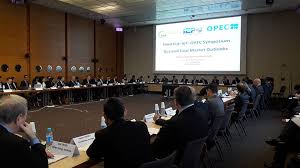LCCI advocates review of tax policies in Nigeria

Joy Obakeye
The Lagos Chamber of Commerce and Industry (LCCI), has called on the government to review the tax policies of the country to align with the economic diversification drive.
Director-General of LCCI, Muda Yusuf, who disclosed this in a statement in Lagos, said that the quality of the nation’s infrastructure, policies and institutions are crucial to driving economic diversification through a reversal of the tax burden from investors to consumers.
“The three tiers of government targets investors more than consumers and this is not in consonance with best practice principles in taxation.
“In an economy which is almost 50 percent informal, this structure of taxation is not investment friendly because the formal sector of the economy bears the largest burden of the tax system.”
Yusuf said the use of banks as collection agents for the Federal Inland Revenue Service (FIRS) was disruptive, distracting, arbitrary, oppressive and unfair to investors.
He noted that it was a serious disincentive to investment and the promotion of financial inclusion, adding that the approach should be discontinued.
He also stressed that the trade policies should be guided by sectoral competitive and comparative advantage to ensure sustainability.
Yusuf said that institutional capacity to enforce the policies should also be considered in trade policy formulation.
“Policies should be focused on incentivizing resource-based industries which typically has a competitive advantage and good impact on the economy because of the high multiplier effect.
“The relativity of tariffs between Nigeria and neighboring countries should also be considered in the formulation of trade policy”, he said.
He stressed that fixing the country’s infrastructure was critical to building a competitive economy and a fundamental requirement for economic diversification and sustainable job creation.
Yusuf said that transformation in the agricultural and manufacturing sectors largely depended on the quality of infrastructure.
“A key focus of diversification should be on resource-based industries – agro-allied, oil, and gas, manufacturing with high local content.
“These sectors will strengthen the capacity of the economy to create jobs, drive inclusive growth, promote income redistribution and generally impact positively on the economy.”
According to him, a lot of potentials still needs to be unlocked in the oil and gas sector, especially in refineries, fertilizers plants, gas-based industries, and petrochemicals.
“We need to put an end to being just a crude oil exporter to self-sufficiency in petroleum products and exporter of refined products and other gas related products”, he said.







